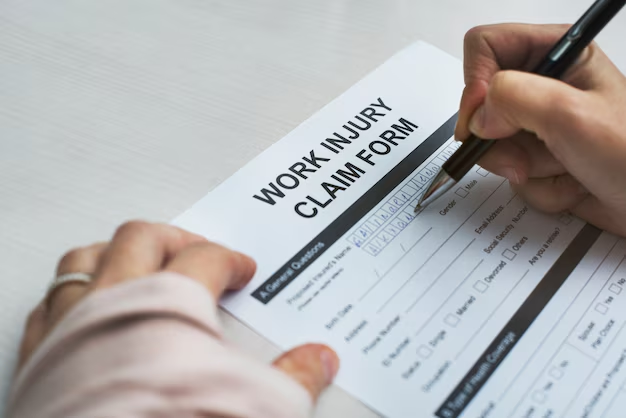How Does Jury Duty Affect Your Workday? Everything You Need to Know
When you receive a jury duty summons, the first question that probably pops into your mind is, "Does jury duty excuse me from work all day?" Navigating the obligations of civic duty while managing professional responsibilities can be a juggling act. Balancing these can seem daunting, but understanding your rights and responsibilities makes it easier. In this comprehensive guide, we explore how jury duty affects your work commitments, your rights as an employee, and practical tips for managing both.
Understanding Jury Duty: Legal Obligations and Employer Responsibilities
Jury duty is a civic obligation that requires citizens to participate in the legal process. Being chosen as a juror is not just a responsibility but also a contribution to the justice system. However, it raises important questions about how it impacts your job.
What the Law Says
In many jurisdictions, laws protect employees called to jury duty. These laws ensure you can't be fired or face retaliation for fulfilling your civic duties. However, the specifics can vary depending on where you live, which is why it's crucial to be aware of local regulations.
- Federal and State Laws: Generally, federal law protects employees from punitive actions due to jury duty. Many state laws go further, requiring employers to grant leave without penalty.
- Notice Requirements: You are typically required to provide your employer with a copy of your jury duty summons as soon as you receive it. This notice gives your employer adequate time to adjust schedules or find temporary coverage.
Employer Responsibilities
Employers have the responsibility to accommodate employees summoned for jury duty. They must adhere to laws that protect employees' rights and may have policies in place to manage this common occurrence.
- Leave Policies: Most companies have jury duty leave policies. Some may offer paid leave, while others may grant unpaid leave. Understanding your employer's specific policy is essential.
- Work Adjustments: Based on the nature of your work, you might be able to make arrangements with your employer to compensate for any lost hours. This could include working extra hours on different days or temporary remote working arrangements.
Does Jury Duty Mean Missing Work All Day?
The next logical question is about the duration. Does jury duty mean you'll miss the entire workday? The answer depends on several factors:
Length of Service
- One-Day, One-Trial Service: Some states implement a one-day, one-trial service rule. If you're not selected for a jury, your service typically concludes after one day. If chosen, you serve for the duration of the trial.
- Duration of Trial: If selected, the length of the trial varies. Some trials last only a day or two, while others can stretch over weeks.
Typical Court Day
A typical court day may not align perfectly with regular work hours, often starting later and ending earlier than standard business hours. This can impact how jury duty affects your workday.
- Morning Sessions: Court sessions often start later than the usual workday. You might be able to check in with work remotely before heading to court.
- Afternoon Breaks: Courts may recess earlier, offering a window to communicate or possibly return to work, if feasible.
Balancing Work and Jury Duty: Practical Tips
Managing both responsibilities can be challenging, but here are some strategies to ensure you're prepared:
Before Jury Duty
- Communicate Early: Discuss your jury duty summons with your employer as soon as you receive it. Proactive communication helps manage expectations.
- Plan Ahead: Ensure that any critical tasks are completed beforehand or delegated to coworkers. Setting an out-of-office message can help manage communications.
During Jury Duty
- Stay Informed: Each day, confirm your required presence at the courthouse. This knowledge helps manage and communicate your availability to your employer.
- Use Downtime Wisely: If possible, use breaks or recess times to catch up on work emails or tasks that can be completed remotely.
After Jury Duty
- Debrief: Once your service concludes, update your employer on your return to full-duty work. Discuss any necessary follow-up actions for catching up.
Employee FAQs about Jury Duty
Here are some frequently asked questions employees have regarding jury duty:
Do I get paid during jury duty?
Compensation during jury duty varies:
- Jury Fees: Jurors often receive a small daily fee from the court which usually does not compensate for regular wages.
- Employer Compensation: Review your employer's policy; some offer paid leave for jury duty, while others might not.
Can I postpone my jury service?
Depending on circumstances, most courts allow deferrals:
- Requesting a Postponement: Valid reasons might include pre-existing obligations or personal hardship.
- Court Requirements: You might need to provide documentation to support your request.
How does jury duty affect my workload?
Jury duty can disrupt normal work routines:
- Temporary Delegation: Arrange for colleagues to cover responsibilities.
- Catch-Up Plans: Schedule time post-duty to catch up on missed work.
Key Takeaways: 🗝️
Here's a quick summary:
- Employee Rights: You're protected from employment retaliation during jury duty.
- Employer Duties: Your employer must accommodate jury service, offering protected leave.
- Communication: Notify your employer early and plan to manage workload effectively.
- Work and Duty Balance: Strategize with your employer to mitigate disruptions.
Navigating jury duty and work commitments need not be overwhelming. Equipped with knowledge and open communication, you can fulfill your civic duties responsibly while maintaining professional obligations effectively. Remember, being informed and prepared is key to managing this balance seamlessly.
Understanding the intricate relationship between jury duty and work commitments is essential for both employees and employers. With careful planning and clear communication, you can navigate this civic obligation without undue stress or hardship, ensuring you contribute positively to the judicial process while meeting your professional responsibilities.

